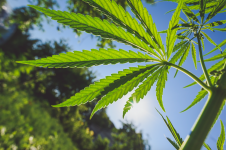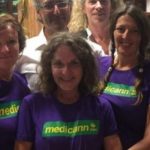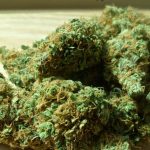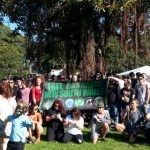Raids on Medical Marijuana Producers: Making Way for Big Business?

Over the last seven weeks, police have made two high-profile raids of medicinal cannabis producers in Australia.
The Ubuntu Wellness Clinic was raided in Newcastle on December 1. NSW police seized 215 plants from a hydroponic operation run by a group called the Church of Ubuntu. The church were one of the largest suppliers of the product in the country, with close to 2,000 clients.
The dispensary was supplying small plants for free to patients, so they could grow them at their own homes to treat cancer and ease the symptoms of extreme epilepsy.
Raids could result in a patient’s death
While the northern Adelaide home of Jenny Hallam was raided on January 4 by South Australia police. A number of products and equipment related to the production of cannabis oil were seized. Ms Hallam was supplying around 100 patients nationwide.
The 44-year-old Hillier resident told the Advertiser on Sunday that she’d been expecting the raid for two years. She criticised police for not utilising their powers of discretion, as the removal of the medicine could result in the death of one of the patients she’d been supplying for free.
Her defence lawyer questioned whether her client had actually committed a crime, as Ms Hallam wasn’t growing the plants she used to make the oil, and nor was she selling her product.
Legalising the medicine that’s being seized
However, the federal government passed the Narcotic Drugs Amendment Bill 2016 in February last year. This legislation allows for the legal cultivation, manufacture and distribution of the very same products that authorities are cracking down on.
Under this new system – which came into effect on October 30 last year – businesses can apply for a licence to grow the plant for medicinal purposes. But this process is slow and those in the community who are seriously ill are questioning what they’re supposed to do in the meantime.
Governments and Big Pharma invest
The NSW government applied for a medicinal cannabis cultivation licence in May last year, and subsequently launched the state’s first medical marijuana farm in an undisclosed location near Tamworth.
Victorian premier Daniel Andrews posed amongst his state’s first crop of medicinal cannabis in August. The premier wrote on his Facebook page that the state was set to be the first to produce a crop that would help patients suffering from severe epilepsy.
At the time the federal legislation came into effect, there were three medicinal cannabis companies listed on the Australian Stock Exchange and a fourth was set to do so.
Large pharmaceutical companies such as Bedrocan Australia and MGC Pharmaceuticals were lining up to apply for licences.
But, could it be that as the legalised market becomes established authorities are beginning to raid current small producers in order to secure the entire market for those big companies and state governments that are investing in it?
A long time producer weighs in
Well, according to medical marijuana producer Dr Andrew Katelaris that’s exactly what’s happening. “What they’re saying is, ‘We want to own the whole thing,’” he told Sydney Criminal Lawyers® and gave an example as to how current producers are undercutting the market for big businesses.
“If I’m treating an epileptic child with our homemade oils, it’s about $150 a month,” the doctor, who acts as a consultant for Ubuntu Wellness Clinic explained. “For the equivalent product coming from GW Pharmaceuticals – which is currently the only pharmaceutical available – it’s $1,500 a month.”
Early cannabis licences
Dr Katelaris has been involved in the medical marijuana debate for decades. He was initially interested in the industrial use of hemp.
In the early 1990s, he found that under Section 23(4)(b) of the Drugs Misuse and Trafficking Act that you can obtain approval to grow an otherwise prohibited plant for scientific research and analysis. And in 1997, he was granted the first industrial hemp licence.
From there he obtained a licence to grow medicinal plants in 2001 at a farm at Spring Ridge. However, soon after, when the chief health minister was replaced, both these licences were revoked.
The national system is a “hoax”
Turnbull has “provided this blanket assurance that cannabis is now legal in this country,” Katelaris outlined. “But in fact what they have done is simply provided a legal framework for some future Therapeutic Goods Administration (TGA) approved supply of cannabis.”
He explained that the national system is unworkable and will take a long time to come into play, if it ever actually does.
Katelaris said that firstly, a company with resources has to be interested in investing in the industry and then a licence has to be obtained. Next a specific condition has to be determined that the medicine will be produced for. And then a TGA approved manufacturer has to be found.
The doctor is concerned as to what patients are supposed to do in the meantime, especially when authorities are raiding current producers.
And he’s not the only critic of the federal system. BRW rich-lister Barry Lambert is a company advisor to Ecofibre: Australia’s largest medicinal cannabis grower. He announced last month that they’re taking their business to the US, as the restrictions in the federal government’s legislation make it too difficult to work within.
An alternate system
What current producers are calling for, according to Katerlaris, is firstly for a moratorium on medicinal cannabis prohibition and arrests. And then there is a three tiered medical marijuana system they want to see established.
The first tier is home growing. “Because it keeps a significant downward pressure on price,” he explained and added that pharmaceutical medicine is too expensive, while people can grow their own relatively cheaply.
The next tier would involve “proxy growing groups” that look after a number of patients who are unable to grow their own. “So I might grow two hectares, because I’m looking after five thousand patients,” the doctor explained.
And the third tier would be the pharmaceutical producers who have been registered with the TGA. This medicine would only be available with a doctor’s prescription.
And Dr Katelaris concluded that “after seventy years of denigrating the medical use of cannabis, doctors cannot control it to the exclusion of all other groups.”







